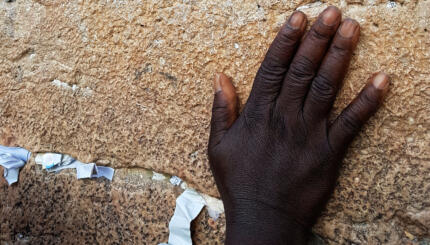Some contemporary Jews have been extending the definition of the Jewish lifecycle beyond the traditional rituals for birth, bar/bat mitzvah, marriage, divorce, and death. The proliferation of new ceremonies in recent decades has invested a host of other life passages with Jewish meaning. Events that were once deemed too private, too female, or even too frivolous to be recognized ritually are finding their ways into the “lingua franca” of Jewish culture.
About Other Life Passages
As Jewish women began to realize that some of their most intense experiences were being denied religious expression, they began to create new lifecycle ceremonies. To develop a ritual language for these new ceremonies, they plumbed existing texts for themes and symbols that they could reinterpret or use in new contexts. Although critics maintain that some of the “lifecycle events” being honored are too trivial for ritual recognition, proponents claim that the role of ritual is to invest the ordinary with significance and that rituals that people use will endure. Some feminists worry that some of these new rituals–for example, pregnancy or menarche ceremonies–focus overly on women’s bodies, but realize that not doing so would deny the validity of female experience. An unexpected consequence of this wave of ritual creation has been to draw peripherally affiliated Jews towards the center of the Jewish community.
Illness and Healing
The history of Jewish healing reflects a movement from a view of God as absolute healer to physicians as God’s partners in the healing process. At the same time, attitudes toward folk-healing traditions have fluctuated in strength. In addition, the belief that illness is a divinely mandated punishment for individual and communal sins has diminished. Modern Jews generally understand illness as a manifestation of genetics, biochemistry, and the environment. Although Americans have generally sought science-based medicine practiced by trained physicians, in the 1980s a non-hierarchical, grassroots format for spiritual healing has emerged as an adjunct to modern medicine. Its most popular technique is the healing service, in a synagogue or a small group, that provides communal support to those in need of healing.
Other Life Passages Inspire New Ceremonies
The new ceremonies use Jewish texts, themes, and prayers that resonate either with the ritual’s content or the emotions it evokes: The biblical story of the infertile Hannah reflects the anguish of infertility or miscarriage. The theme of human beings as God’s partners in creation honors the choice to become pregnant. The way King David dealt with the illness and death of his son encapsulates the need to live again after an abortion. The birth experience of the Jewish people at the Red Sea is echoed in the birth of a baby or in the new self-awareness that follows a coming-out ceremony.

Help us keep Jewish knowledge accessible to millions of people around the world.
Your donation to My Jewish Learning fuels endless journeys of Jewish discovery. With your help, My Jewish Learning can continue to provide nonstop opportunities for learning, connection and growth.
Sometimes a new ritual will reinterpret an existing ceremony for a new context. A Tashlikh ceremony in which sins are symbolically cast into the water may reappear as a means of casting away hope for successful infertility treatments or of guiding the irresponsible child within into a more mature awareness. Mourning customs may express sadness. A Havdalah (Sabbath-concluding) service may distinguish between past sorrows and future hope. A “seder” may celebrate the stages of life, culminating in the most recent one attained, that is, menopause.



